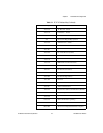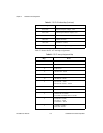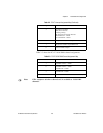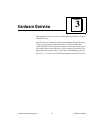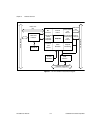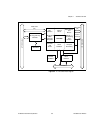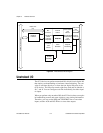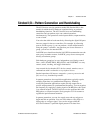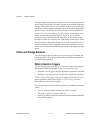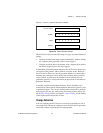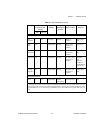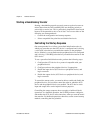
Chapter 3 Hardware Overview
DIO 6533 User Manual 3-6 © National Instruments Corporation
A variant of pattern generation is change detection. In change detection,
the 6533 device generates an internal request only when the input data
changes. This feature allows you to monitor activity on the input lines
efficiently, without capturing multiple copies of the same input pattern.
See the Pattern and Change Detection section for more information.
In full, or two-way, handshaking transfer, control information passes
both to and from the peripheral device. The 6533 device and the
peripheral device each provides the other with strobe signals as data
becomes available or is acquired. By withholding strobe signals, either
the 6533 device or the peripheral device can slow down the transfer, if
necessary. Because of this capability, and because fixed rates are not
critical, you can run full-handshaking operations at the highest possible
speeds.
Pattern and Change Detection
You can configure the 6533 device to do several types of pattern and
change detection. These modes add additional monitoring capabilities
to strobed input operation.
Pattern-Detection Triggers
You can configure the 6533 device to search for a particular pattern in
the input data. When the pattern occurs, the 6533 device can:
• Generate a start trigger to begin a digital data acquisition operation
• Generate a stop trigger to end a digital data acquisition operation
To use a start or stop trigger, you must configure the 6533 device for
pattern-generation mode. See Chapter5, Signal Timing, for more
information on start and stop triggers.
You can specify the following three parameters to the pattern-detection
circuit:
• A mask, declaring which data bits you wish to examine
• The pattern value you wish to search for
• Polarity (whether to search for data that matches or that mismatches
the specified pattern)



